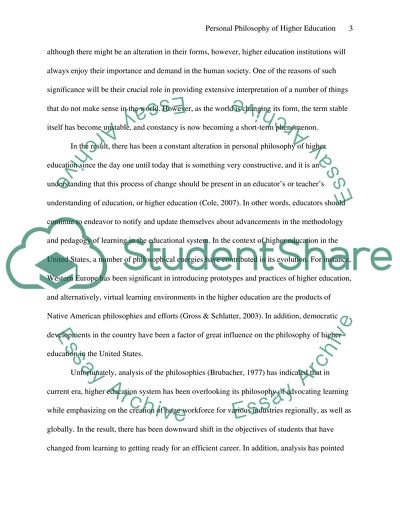Cite this document
(Personal Philosophy of Higher Education Essay Example | Topics and Well Written Essays - 2000 words, n.d.)
Personal Philosophy of Higher Education Essay Example | Topics and Well Written Essays - 2000 words. Retrieved from https://studentshare.org/education/1567191-personal-philosophy-of-higher-education
Personal Philosophy of Higher Education Essay Example | Topics and Well Written Essays - 2000 words. Retrieved from https://studentshare.org/education/1567191-personal-philosophy-of-higher-education
(Personal Philosophy of Higher Education Essay Example | Topics and Well Written Essays - 2000 Words)
Personal Philosophy of Higher Education Essay Example | Topics and Well Written Essays - 2000 Words. https://studentshare.org/education/1567191-personal-philosophy-of-higher-education.
Personal Philosophy of Higher Education Essay Example | Topics and Well Written Essays - 2000 Words. https://studentshare.org/education/1567191-personal-philosophy-of-higher-education.
“Personal Philosophy of Higher Education Essay Example | Topics and Well Written Essays - 2000 Words”. https://studentshare.org/education/1567191-personal-philosophy-of-higher-education.


